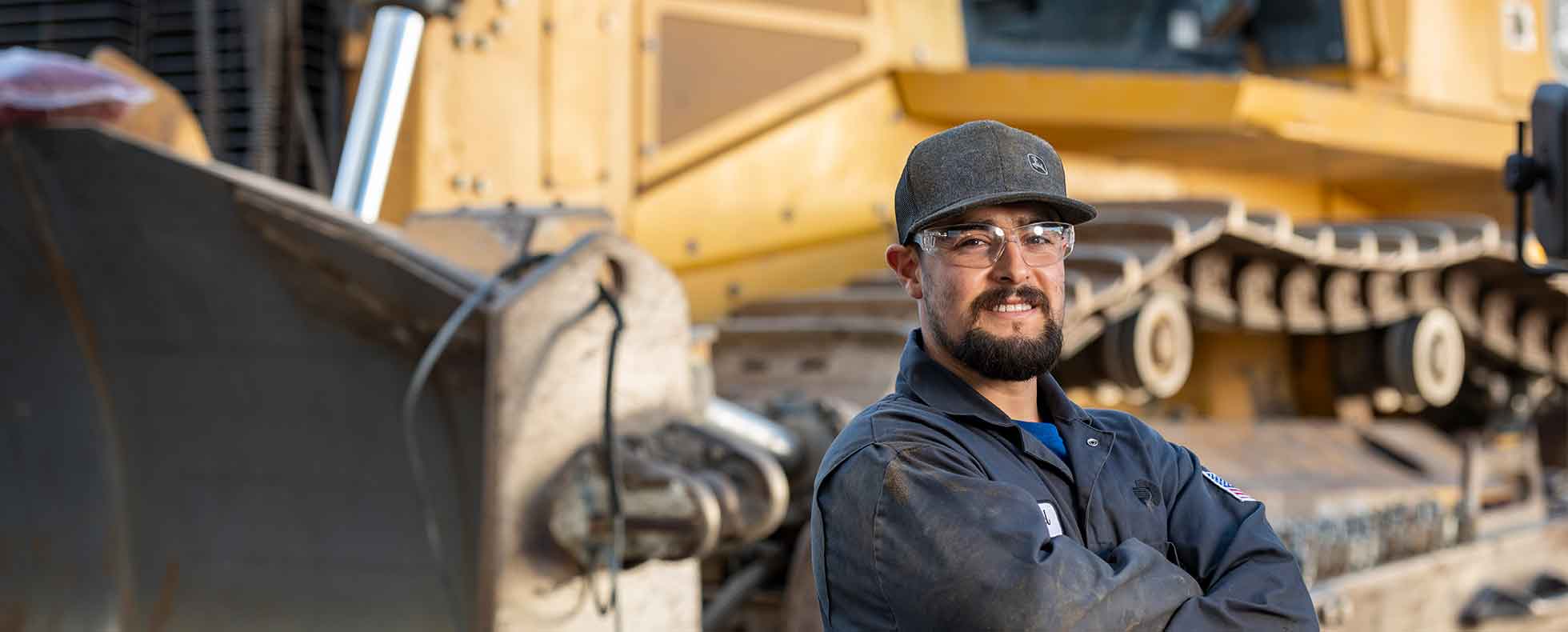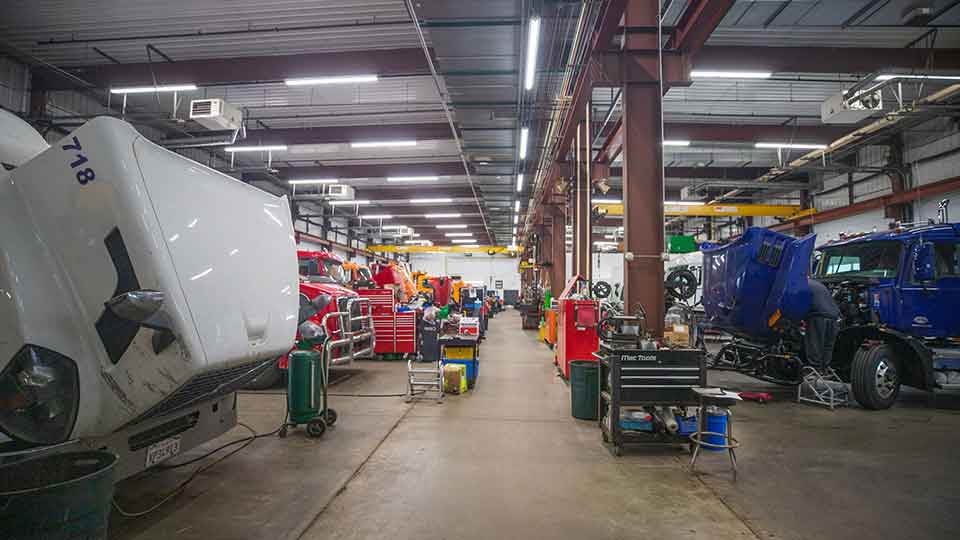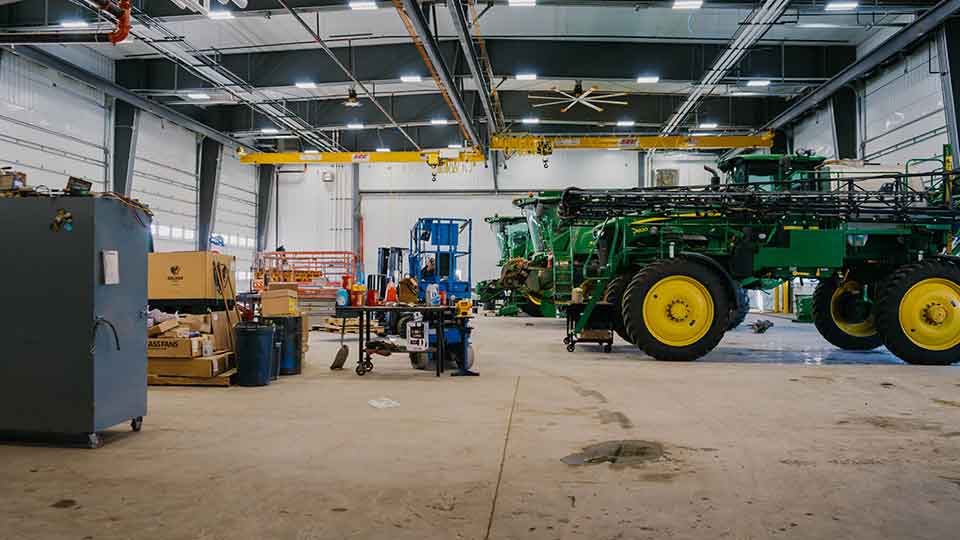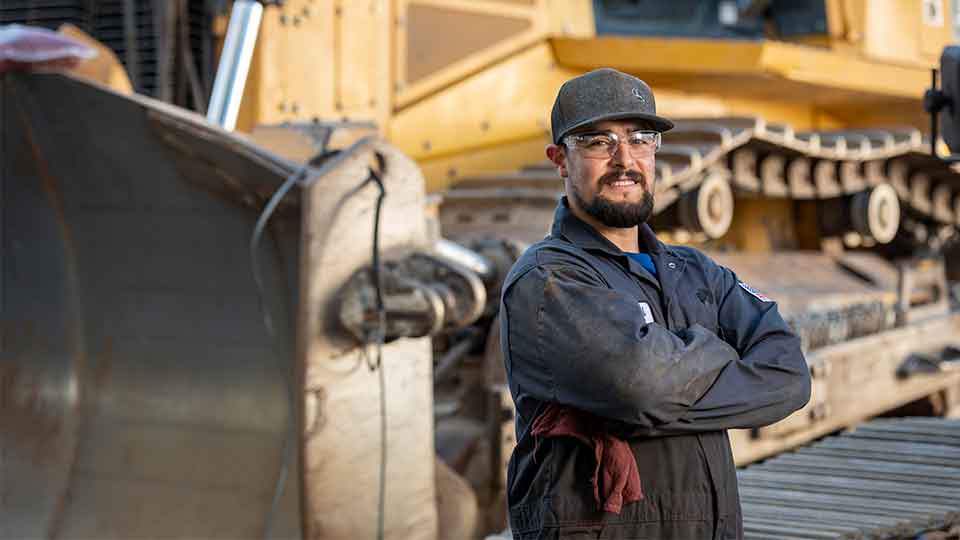
As a talented mechanic, you have options for where you take your career.
In fact, the demand for mechanics is increasing across industries such as transportation, forestry, oil and gas, mining, construction and agriculture. This leaves you with some choices to make.
One choice diesel mechanics commonly have is whether to work on class-eight semi trucks at a dealership or trucking company or heavy equipment at a dealership or manufacturer.
These jobs are similar in many ways but different in others.
Because of these differences, a mechanic who loves working on semi-trucks might not enjoy the world of heavy equipment — and vice versa.
I’ve worked in both of these areas throughout my career as a diesel technician.
After five years working on semi-trucks, I joined RDO Equipment Co., where I service heavy equipment from manufacturers like John Deere and Vermeer.
In this article, I’ll describe each of these jobs so you can decide which is best for you.
A semi-truck diesel mechanic is a professional mechanic who specializes in inspecting, troubleshooting, repairing and servicing class-eight semi-tractors.
Depending on the company, a semi-truck mechanic may work specifically on equipment from one manufacturer — like Volvo, Peterbilt, Freightliner or Mack — or on products from more than one company.
Mechanics working for a trucking company’s fleet may see vehicles from multiple manufacturers, while those at a dealership may work with one.

Sign Up: Service Technician Monthly Newsletter
Become a more profitable, successful mechanic with insights and resources sent to your inbox every month.
Semi-truck mechanics handle the repair, maintenance, aftertreatment, and inspection of every truck component, ensuring that everything is in working order for drivers on the road.
This means many different things, but it primarily involves performing work on axles, diesel engines, aftertreatment systems, electrical systems, fuel systems and transmissions.
The average over-the-road truck driver covers hundreds of thousands of miles annually, which wears down their vehicles and makes routine maintenance and occasional repairs a necessity.
When I was doing this work, I did everything from axle rebuilds, engine rebuilds, engine removals and swaps, to transmission repairs, rebuilds and replacements, clutch replacements and more routine maintenance like oil change services and Department of Transportation (DOT) vehicle inspections.
Heavy equipment diesel mechanics are professional technicians who work on heavy equipment and machinery. This machinery is used in industries like mining, oil and gas, forestry, construction and agriculture.
In this profession, diesel mechanics inspect, troubleshoot, diagnose, repair and maintain this diesel-powered machinery, either from the bays of a service shop or out in the field.
The exact products they work on will depend on the company they work for and the industry they work in.
At RDO, for example, technicians in our Lakeside, CA store service heavy-duty construction equipment like bulldozers, excavators, motor graders, backhoes, articulated dump trucks (ADTs) and skid steers.
Alternatively, service technicians work with things like combines and tractors in a location focusing on agriculture equipment, like Washburn, SD.
Regardless of their industry, heavy equipment mechanics commonly work on the diesel engines, hydraulic systems, fuel systems, transmissions and electrical systems of these highly technical machines.

There are a lot of similarities between the work you’d do as a semi-truck mechanic and what you’d do in the heavy equipment world.
Diesel engines are diesel engines, and what you see in the trucking industry will look very similar to what you see with off-road heavy equipment.
One difference you’ll notice is the amount of space you have to perform work — particularly on the engines.
Semi-trucks typically have a bit more space under the hood to work within.
Large off-road machinery tends to have engines that are tightly packed with multiple panels and components which need to be removed to gain access.
Here are four more differences between these jobs:
As a semi-truck diesel mechanic, you won’t encounter any hydraulics unless you work on special applications like trash trucks or semi-trucks with dump trailers/beds.
With heavy equipment, hydraulics are very prevalent as these systems help power the movement of machine parts (like the bucket on a backhoe).
Learning hydraulics will take time as you transition into the heavy equipment industry, but your employer should ease you into this transition.
Transmissions will also vary across these machines. While automatic transmissions are making their way into the trucking world, they are more prevalent in the heavy equipment realm.
The specialty tools you use to perform certain repairs on a machine will vary between manufacturers and equipment types. While most of this may be provided by your company, you might need to invest in different diesel mechanic tools depending on where you work.
For the most part, truck mechanics work only on class-eight semi-tractors. Every project is different and there are plenty of different repairs to do on these vehicles.
That said, heavy equipment technicians work with a wider range of equipment. For example, they may work on a backhoe one day, a skid steer the next and an excavator the following.
These machines are very complex and test diesel mechanics in different ways.
Compared to semi-trucks, working as a heavy equipment mechanic can be a bit dirtier. The equipment these technicians work on spends most of its time off-road (at job sites, fields, farms, etc.), picking up debris as it goes.
In both of these careers, expect to encounter a lot of dirt, debris, mud, oil and grease, just more of it around heavy equipment.

Now, we get to the tricky question.
Both of these areas can become great careers for you. Thousands of mechanics enjoy working on class-eight semi trucks and the fulfillment of knowing they’re keeping truck drivers on the road.
Others are passionate about construction, mining, forestry or agriculture equipment and like the fact that working with these machines requires constant learning.
In the end, this comes down to what your goals are and what you like doing.
If you like constant challenges and learning new things, try heavy equipment.
If you’d prefer to master one kind of equipment, try the trucking industry.
Don’t worry — whatever you choose now doesn’t have to be what you do forever.
Just find a good employer that will invest in you and give you opportunities to grow — everything else will fall into place.
Whether you’re a seasoned diesel mechanic looking for a new challenge or a student interested in an internship, RDO has a place for you.
As a growing organization with more than 80 locations across 12 states, we consistently have new service technician jobs throughout our company.
Learn more about RDO service technician careers here and take the first step toward building a career you’re proud of.